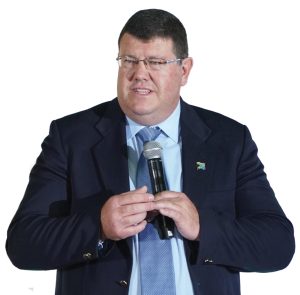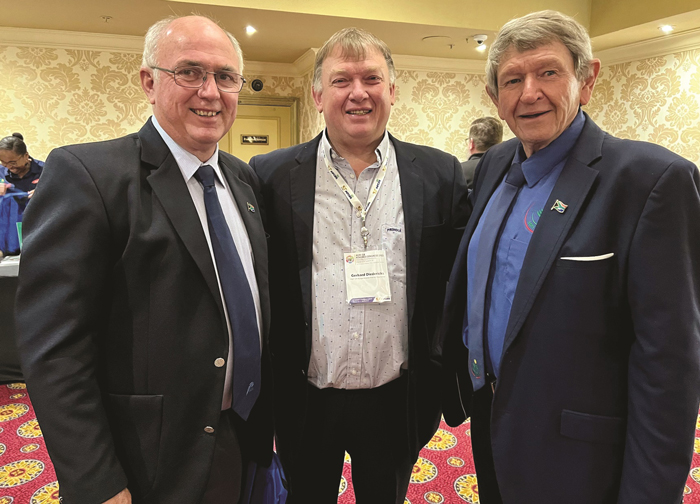Adaptability has been one of the key attributes needed to survive in agriculture for many years. Although still immensely important, identifying beneficial partnerships with the ability to find cooperative and creative solutions for challenges is the key driver to survival today.
Pheneas Gumede, vice president of Agri SA, pointed out during the Agri SA congress that was held from 12 to 13 October, that food certainty goes beyond affordability, availability, or accessibility. ‘Infrastructure and a sustainable approach are key elements in achieving the basic level of food certainty.’
Although the country has been plagued with social and economic challenges, agriculture is playing a crucial role in society, Minister of Agriculture, Land Reform and Rural Development, Thoko Didiza, acknowledged in her address. ‘The agricultural sector has performed well over the past couple of years despite the challenging conditions posed by the Covid-19 pandemic, electricity issues, biosecurity threats, and weather-related constraints.’

Highlighting the fact that the size of the agricultural economy was 25% larger than three years ago, that agricultural exports expanded by R47 billion, and that the sector has generated 52 000 new jobs, she said she believes that at times these successes were overshadowed by negative sentiments and duality problems.
She admitted that although all social problems cannot be resolved only through obtaining food security – or food certainty to be in line with the Agri SA congress theme – cooperation between all parties was crucial to unlock the potential of agriculture in the country.
The minister also admitted that government did not fully fulfil the need of the sector regarding the provision of animal vaccines. ‘We took notice of the weak points in our vaccine system, and we are in the process of addressing this.’
Referring to the current crisis in the poultry industry, she said that the department had discussions with the various role players to find solutions. She cautioned that vaccination will not be the golden bullet to address all the challenges. ‘Biosecurity remains one of the most important aspects. While we focus on availability of vaccines, we must push for better application of biosecurity measures. We must also ensure that vaccines are efficient, of good quality, deal with the current strain and are safe for workers, farmers, the industry, and consumers.’
‘We need to build networks of resilience to mitigate vulnerabilities, shocks, and stresses, and so balance our interests in exports and local production, address the food waste problem and invest in the informal sector. Public-private partnerships will be a cornerstone to achieve solutions,’ she added.
Jaco Minnaar, Agri SA president, said, ‘As individuals and as a collective, we should collectively address and improve all the factors that impact food security. We can’t look back in ten years with regret because we failed to address today’s challenges.’ He stressed that the time to act was now.
‘If local industries are not protected, our people will not be able to get decent jobs and an income to afford even the cheapest food. We call on government to reflect carefully on the potential long-term adverse effects of a short-term easing of food prices especially when deciding on tariffs.’
He pointed out that South Africa has the highest unemployment rate in the world and that labour-intensive industries struggle to compete internationally because labour costs are so high. ‘Agri SA deeply empathises with the poverty situation in the country, and we are trying our best to create opportunities for a larger labour force and larger local economies.’
According to Minnaar the rising cost of agricultural inputs remains a major concern. ‘Global events continuously impact on input availability and prices. This complicates decision-making at the time of purchases and sales.’
He added that it remains extremely important to protect the free market system. ‘When the free market is interfered with, there are always many unforeseen consequences. Current government investigations to interfere in food prices will have to be handled with great caution because the unforeseen consequences could be catastrophic.’

Minnaar was concerned about the continuous decay of infrastructure and pointed out that this has a significant effect on food security. ‘The decay of our ports, railways, roads, as well as other infrastructure, has a huge impact not only on our ability to export and obtain foreign exchange, but on our ability to be competitive and to produce food locally. Agri SA is working hard with other role players to stop and reverse the decay so that our economy can regain strength and grow.’
He remarked that although availability and affordability of energy were a major problem around the world, it was more severe in South Africa. ‘We should, however, perceive these challenges as the catalyst to put South Africa at the forefront of renewable energy and a growing inclusive economy.’



















